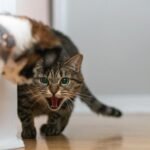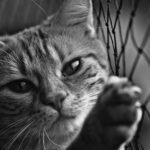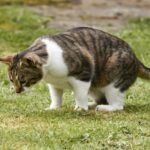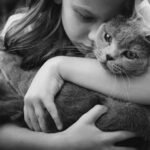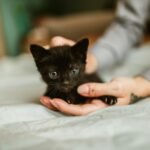Joseph Journell’s attempt to improve his aging cat’s health became a nightmare. The 56-year-old San Bernardino resident lost two beloved pets after giving them unpasteurized milk that was later discovered to contain the bird flu virus. His story serves as a heartbreaking warning about the risks of raw animal products during the ongoing avian influenza outbreak.
A Well-Intentioned Decision Turns Tragic
Image by pexels
Journell had been drinking raw milk from a Fresno company called Raw Farm for several months. He believed in its health benefits. When his 14-year-old tabby Alexander started losing weight, Journell thought sharing this “natural” product might help.
“I was trying to make him healthier and make him live longer,” Journell explained. Instead, the decision had devastating consequences.
Alexander died on Thanksgiving Day. Just two days later, Tuxsie, his 4-year-old tuxedo cat, also passed away. A third cat named Big Boy became seriously ill but survived after a week of veterinary care. Tests confirmed the bird flu infection in Big Boy, revealing the cause of the mysterious illnesses.
The fourth cat in the household, Cleo, never drank the milk and remained healthy – providing a clear connection between the raw milk consumption and the tragic outcomes.
The Science Behind the Outbreak
Image by pexels
H5N1 avian influenza has spread through dairy herds across the United States at an unprecedented rate. More than 900 herds in 16 states have been affected. California has been hit particularly hard, accounting for about 80% of the infected herds.
When cows become infected with bird flu, the virus can be present in their milk. Pasteurization – the process of heating milk to kill harmful bacteria and viruses – effectively eliminates this risk. However, unpasteurized milk provides no such protection.
“The virus can remain viable in raw milk for days under refrigeration,” explains veterinary virologist Dr. Katherine Wells. “When consumed by cats, the virus affects their neurological system with devastating efficiency.”
The cats in Journell’s case were kept indoors with no access to wild birds or other typical sources of avian influenza. This helped investigators confirm the milk as the source of infection.
Not an Isolated Case
Sadly, Journell’s cats aren’t the only victims. Nearly a dozen cats across California have died since early December after consuming raw milk or raw pet food contaminated with bird flu.
Richard Webby, an influenza expert at St. Jude Children’s Research Hospital, noted that virus survival likely varies between different batches of milk. When asked about the connection, he stated simply: “I think the poor cats are the best indicator!”
Big Boy, the survivor, returned home with lasting neurological damage. He’s now blind and initially couldn’t use his back legs, though he’s slowly regaining some function.
Human Health Concerns
Image by pexels
After his cats fell ill, Journell himself developed symptoms and sought medical care. However, he reports not being tested for bird flu despite his known exposure. This highlights ongoing challenges in the healthcare system’s response to this evolving outbreak.
While human infections from the current H5N1 strain remain rare, public health officials continue to monitor the situation closely. The virus’s ability to infect mammals raises concerns about its potential to adapt for more efficient human-to-human transmission.
A Costly Lesson
Journell has spent over $12,000 on veterinary care and is seeking compensation from Raw Farm. The company’s owner disputes that the virus could survive in bottled milk long enough to cause illness – a claim that contradicts evidence from Journell’s cats and scientific understanding of the virus.
Federal health officials have consistently warned against consuming raw milk, citing risks from numerous pathogens. The FDA specifically cautioned pet owners: “Cats should not be fed any products from affected farms if those products have not been thoroughly cooked or pasteurized to kill the virus.”
Despite his devastating experience, Journell admits he still believes raw milk offers some health benefits – illustrating how deeply marketing claims about “natural” products can influence consumer behavior.
For pet owners, veterinarians, and public health officials, these cases underscore the importance of food safety precautions during disease outbreaks – especially when our smallest family members’ lives are at stake.

